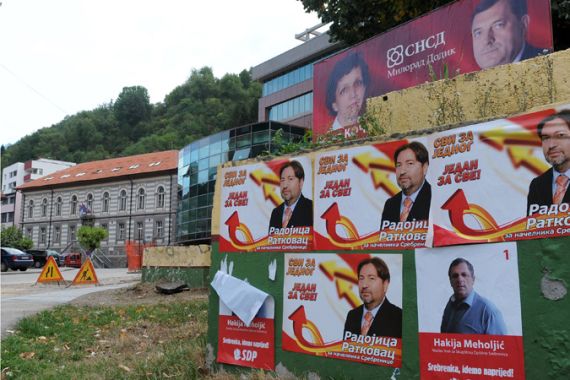Bosnia kicks off pilot census
Exercise to pave way for first population count since 1990s inter-ethnic war that brought major demographic change.

Bosnia has launched a test census that should pave the way for holding the country’s first population count since its inter-ethnic war in the 1990s that brought significant demographic change.
The test run will determine if Bosnia is ready to conduct a fully-fledged census in April 2013, officials said on Monday.
Holding a full-fledged census is key for Bosnia’s approach to the European Union and Brussels has warned Sarajevo that up-to-date population data are key to receiving the bloc’s aid funds for future candidates.
The two-week pilot census, that will question some 15,000 people, will be held in both Bosnia’s post-war entities, the Serbs’ Republika Srpska and the Muslim Croat-Federation, FENA news agency reported.
The country’s last population count was held in 1991 when it was still part of Yugoslavia. The census found there were almost 4.4 million inhabitants living in Bosnia at the time.
The breakdown revealed 43.7 per cent were Bosniaks [Bosnian Muslims], 31.4 per cent Serbs, and 17.3 per cent Croats.
“We did not have a census for 20 years and one has to take into account that we don’t have an option like other countries … to compare with previous censuses and fix mistakes,” the head of Bosnia’ statistics bureau Zdenko Milinovic told FENA.
Legacy of war
The 1992-1995 war between Bosnia’s Croats, Muslims and Serbs, that claimed some 100,000 lives, led to significant demographic changes.
The conflict forced nearly 2.2 million people to flee their homes, moving mostly to regions within the country controlled by their own ethnic group.
A census law, that was a matter of a long-running dispute between the three ethnic groups, was eventually adopted in February.
Muslims fear that the findings of a census, including questions on ethnicity, religion and language, could cement wartime “ethnic cleansing” in certain areas where Muslim refugees never returned.
Currently, in some of these municipalities, the results of the 1991 census are still the benchmark for apportioning public service jobs and a new count would weaken the Muslims’ position there.
According to 2010 UN estimates, Bosnia-Hercegovina is home to about 3.8 million people.
It is now an independent state, but under international administration, since the 1995 Dayton Peace Accord.